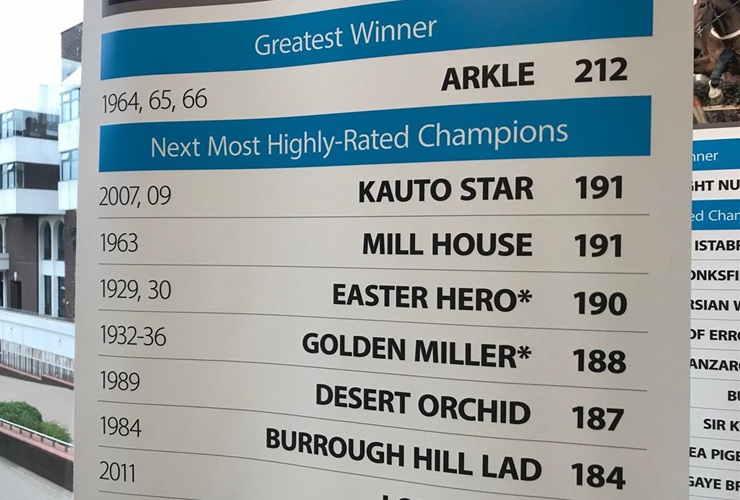
No points awarded but four National titles are up for grabs
74 bands head to Cheltenham Racecourse this weekend hoping to make a return journey to their home stable crowned as National Champion.
To do so would be musical ‘Bliss’ for those competing in Sections One, Two and Three, faced as they are with stern tests of technique and musical understanding with a trio of works from the pen of the late Master of the Queen’s Musick, Sir Arthur Bliss (1891 – 1975).
Ballet duo
Two are directly linked to ballets, although both owe their inspirations to more aesthetic interpretations of life, love and death than recently heard at the British Open at Symphony Hall.
Two are directly linked to ballets, although both owe their inspirations to more aesthetic interpretations of life, love and death than recently heard at the British Open at Symphony Hall.
‘Checkmate’, even in its condensed ‘speed-chess’ form, packs a great deal into its battle of First Section wits, whilst ‘Adam Zero’ in the Second sees the full cycle of a man’s fourscore tenure on earth played out like an allegory of the British weather – Autumn chill ahead of Summer sun.
‘Music From The Royal Palaces’ is also linked to monarchy and time – in this case a 1960s television series peek behind the veil of mystery that still surrounded the Royal Family, although like ‘Checkmate’ there is still a murder involved in the great schemes of things.
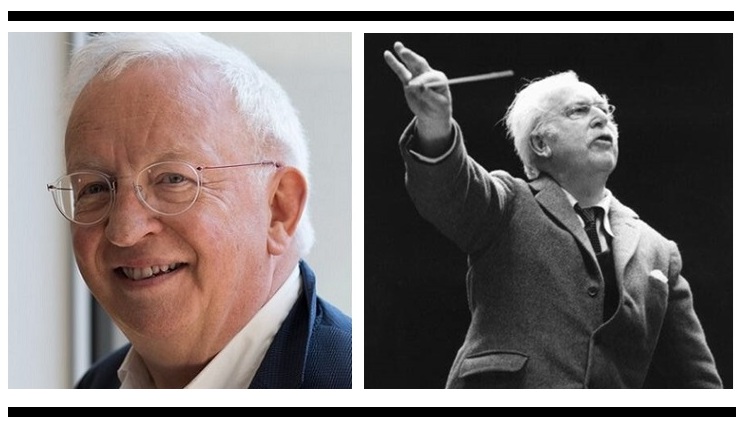
Afterlife
Even Edward Gregson’s ‘Partita’ in the Fourth Section takes it inspiration from a battle of the afterlife soul to the Kingdom of Heaven – although given its thematic material, hopefully it won’t be a day of wrath for the competing bands.
Plenty to look forward to then, even if The Centaur auditorium doesn’t quite have the acoustic sensitivity of Symphony Hall, or the same number of seats sold to the listening public.
Plenty to look forward to then, even if The Centaur auditorium doesn’t quite have the acoustic sensitivity of Symphony Hall, or the same number of seats sold to the listening public. Those who do attend, find a very well organised day (although there have been grumbles about ticket prices for players) with an atmosphere that does come alive come results time.
Kick off time
It all kicks off at 9.00am on Saturday morning with the first of the 19 bands tackling Dr Robert Childs’ arrangement of ‘Suite from Adam Zero’, followed in the afternoon by three of the ‘Four Dances from Checkmate’ played by the 18 contenders. The organisers hope the final moves should be all over by 9.30pm.
Sunday (9.00am) will see 17 Fourth Section performances of 'Partita’, before the afternoon sees 20 bands knock on the musical doors of ‘The Royal Palaces’ to see which of them ends up on the Third Section throne.
4BR will be there to listen to the performances over the two days, bring you our opinions and thoughts, as well as the results when they are announced.
Iwan Fox
First Section:
Created by composer Arthur Bliss and the legendary Irish-born choreographer Ninette de Valois, ‘Checkmate’ was premiered in 1937 in Paris, quickly becoming her ‘signature’ work and a cornerstone of his performed repertoire.
Bliss was a passionate ballet aficionado after seeing Diaghilev’s Ballet Russes as a student at the Royal Academy of Music. He later wrote that those evenings were “shot through with unexpected excitements” – so much so that he would jump on board the bus home “with the dash of a Nijinsky leap”.
He was also a keen chess player, so when meeting former Diaghilev dancer Tamara Karasavina at a dinner party in 1923, a discussion about a “drama of games, and the idea of a pitiless queen” soon became the catalyst for ‘Checkmate’ – a one act ballet dedicated to composer and fellow chess enthusiast R.O. Morris, whom Bliss regularly played.
Huge success
With de Valois’ vision and the chessboard set design of Edward McKnight Kauffer, the premiere was a huge success – the game played between Red and Black, Love and Death.
At a time of the growing menace of Nazi ideology and imagery, the theatrical goosestepping black pawns sent a shiver down the spines of the audience when it was given its UK premiere at Sadler’s Wells in 1937.
At a time of the growing menace of Nazi ideology and imagery, the theatrical goosestepping black pawns sent a shiver down the spines of the audience when it was given its UK premiere at Sadler’s Wells in 1937.
Some illusion
Eric Ball took scenes from the ballet score to create his ‘Suite’ – although it’s a real pity that the short ’Red Knights Mazurka’ wasn’t performed at the 1978 National Finals (for which it was commissioned) or for this event.
Overall, it may lack the original’s opulence, but it certainly isn’t spendthrift in what it achieves.
He also spoke of the difficulties in recreating the evocative sound palette (he kept the percussion as written) saying that he instead he had to offer “some illusion” in effect – notably in the ‘Ceremony of the Red Bishops’.
Overall, it may lack the original’s opulence, but it certainly isn’t spendthrift in what it achieves.

Omission
The omission of the ‘Mazurka’ though is a puzzle. Less than 3 minutes in duration, it offers an animated bridging mechanism between the opening ‘Dance of the Four Knights’ and the ‘Ceremony of the Red Bishops’. As a result, it sits curiously detached before the ‘Checkmate’ finale – a leap from peaceful repose to murderous intent that misses out a huge chunk of the building tension that earmarks the original ballet score.
Highly strung
Still, there is plenty to keep everyone engrossed, especially the highly strung ‘Four Knights’ as they prance and preen in all their finery to their dislocated dance movements to open. Capture their resolute essence (without the splits and trips) and you feel the music pulling on the bridle.
That in turn has a brutal, pitiless virtuosity about its remorseless harrying of the old, frail Red King by the malevolent spear wielding Black Queen.
It’s followed by the sombre mystical atmosphere of ‘The Red Bishops’ gliding across the stage in a diagonal axis as they bless the souls of those about to enter the fray of final battle.
That in turn has a brutal, pitiless virtuosity about its remorseless harrying of the old, frail Red King by the malevolent spear wielding Black Queen.

Moment of death
She is a cross between the Queen of Hearts in 'Alice in Wonderland' and Cersai Lannister in 'Game of Thrones'; her blood temperature remaining at a strict regicidal 144 tempo from start to final pause – never a beat above or below.
Only then does she savour the moment of death: 20 stabs to the Red King’s body before she takes a final quartet of elongated swipes to send him to the grave and her to the throne.
Only then does she savour the moment of death: 20 stabs to the Red King’s body before she takes a final quartet of elongated swipes to send him to the grave and her to the throne.
Filmatic foray
All 18 contenders will surely have enjoyed their preparations on this piece – a filmatic foray to solve rather than cerebral puzzle that came with the Area set work. The judges (two of whom had a ballet full of music making of their own with the British Open) should enjoy it too – Nicholas Garman, Dr David Thonton and Mark Wilkinson tasked with deciding who will be crowned champion.
They will certainly know whether the bands that overplay their opening moves in speed and dynamic will quickly sacrifice any winning checkmate call on their rivals, or whether they have been able to bide their time and stamina to kill a King with the last chord of the day to claim the throne.
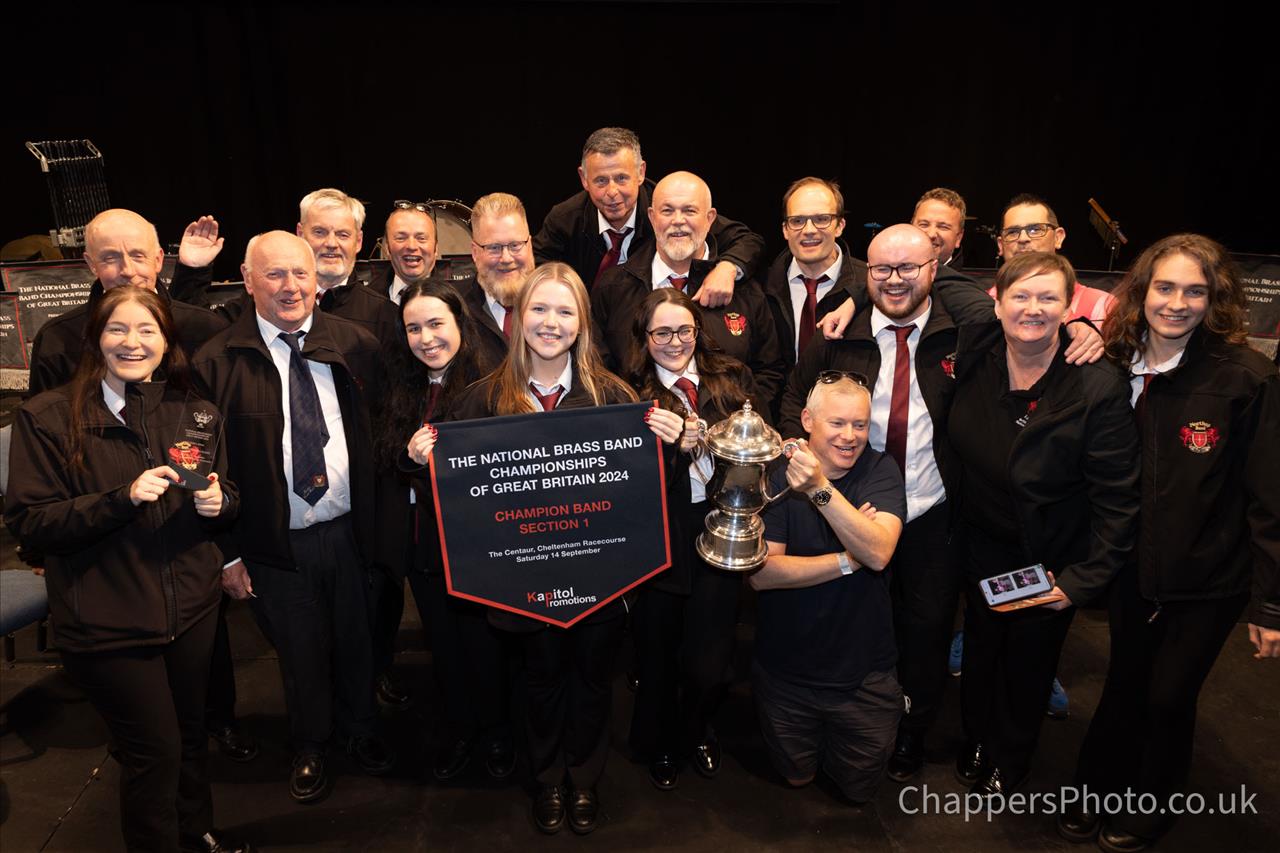
2024 Champion: Northop Silver
Section 1:
Four Dances from Checkmate (Arthur Bliss arr. Eric Ball)
Adjudicators: Nicholas Garman; Dr David Thornton; Mark Wilkinson
Audley (Tom Hancock)
Cockerton Prize Silver (Andrew Hunter)
Diggle (Sean Conway)
Freckleton (Adam Taylor)
Glastonbury (Liam Grunsell)
Granite City (Bruce Wallace)
Kidlington Concert (Jonathan Pippen)
Michelmersh Silver (Kevin Smith)
Newtongrange Silver (Anne Crookston)
Old Silkstone (Norman Law)
Parc & Dare (Dewi Griffiths)
Raunds Temperance (John Hudson)
Ripon City (Garry Hallas)
Roche (Matt Green)
Thundersley (Melvin White)
Tyldesley (Neil Samuel)
Tylorstown (Nigel Seaman)
Unite the Union (Jonathan Beatty)
Second Section:
Perhaps the most musically intriguing test of the weekend will come in the Second Section on Saturday morning.
Following ‘Checkmate’, Bliss wrote the score to ‘Miracle in Gorbals’ in 1944. Its success paved the way for ‘Adam Zero’ in 1946, also a collaboration with Michael Benthall and Robert Helpmann.
It was dedicated to it conductor, the remarkable Constant Lambert – a man for all musical seasons in more ways than one.
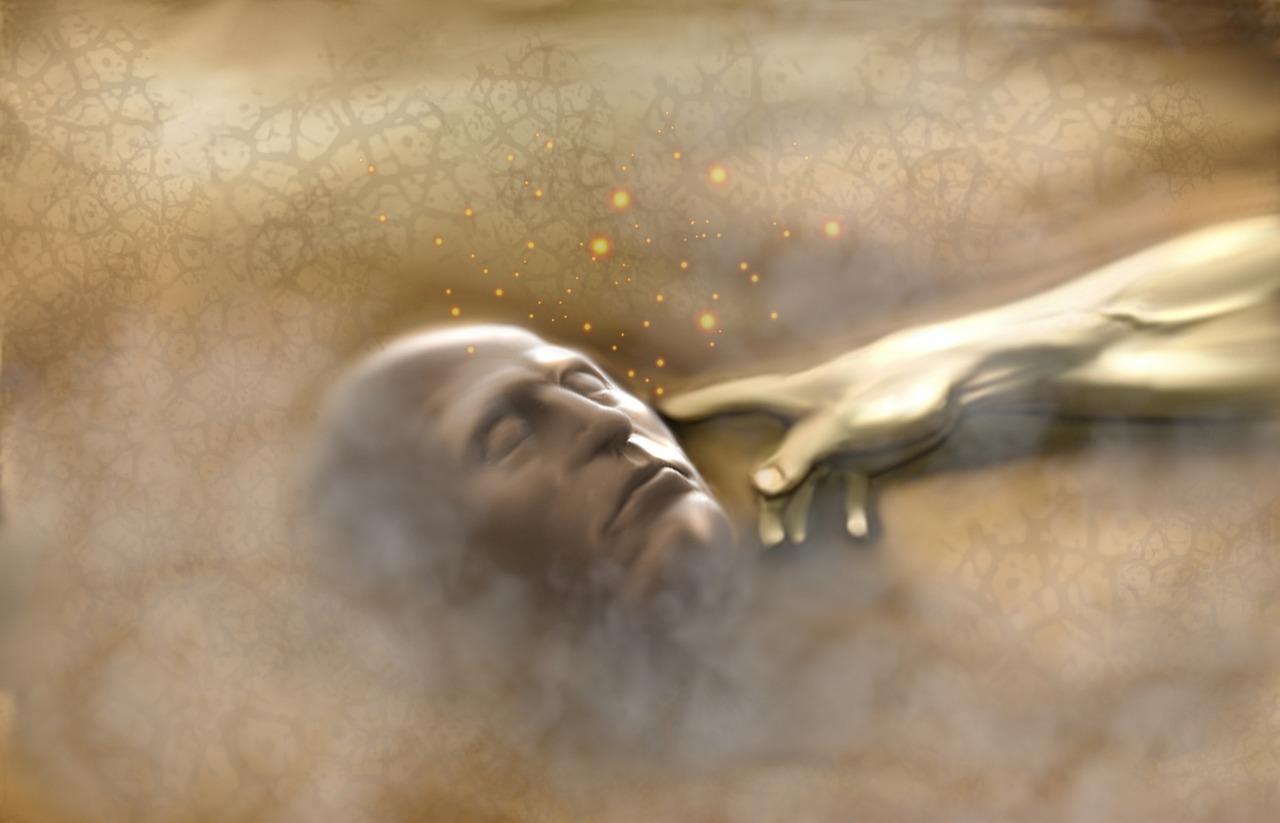
Allegorical tale
It's an allegorical tale of one man’s life (some critics felt his) and the world in which he lives (think ‘The Truman Show’ meets ‘Benjamin Button’ in reverse) – as Benthall said; “...a philosophy that life moves in an endless series of timeless cycles”.
In the original, within 40 minutes Adam Zero is born, falls in love, marries, matures, gets supplanted by youth, loses his power and ultimately faces death alone and as naked as the day he was born.
In the original, within 40 minutes Adam Zero is born, falls in love, marries, matures, gets supplanted by youth, loses his power and ultimately faces death alone and as naked as the day he was born.
It takes a bit of understanding. The critics loved it, but its strange opaqueness and set-up of performers failed to capture the public’s imagination. It was only revived again 70 years later.
Bliss at best
The music is Bliss at his best though – ever resourceful, inventive and searching. He himself stated that it was “his most varied and exciting ballet score.” His Adam is flawed in his search for fulfilment – like us all. Death comes as a release.
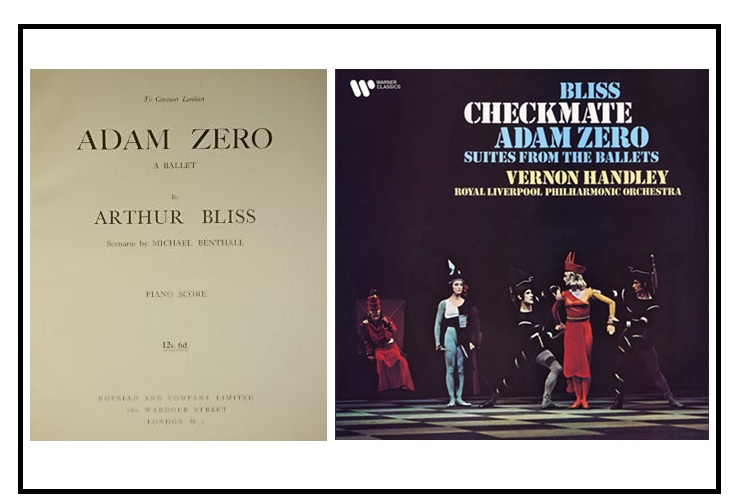
Expert deference
Dr Robert Childs pays expert deference in his clever reworking, which itself comes from a concert suite Bliss extracted from the original in 1948.
It doesn’t follow the ballet narrative; instead melding the opening ‘Fanfare Overture’ full of expectancy and emerging spirit to the pulsating joyfulness of ‘Dance of Spring’, bold and rolling along.
The ‘Approach of Autumn’ has a darkly mysterious edge of change to it - a slow metamorphosis into creeping late middle age with hints of a tender past.
Injection of youth
At this point Dr Childs changes the life cycle – back in this case to a ‘Dance of Summer’, as if Adam Zero has been rejuvenated in spirit by an injection of a youth serum - although in this case more to give the test-piece a triumphant ending and a short waspish coda flourish.
whoever captures both its allegorical spirit as well as its more human contest winning characteristics will be a band worthy of the title as they look to impress the work’s arranger, Dr Robert Childs, Stephanie Binns and Dr Brett Baker in the box.
It works splendidly and is some test.
Those who heard Black Dyke Band play it at the RNCM Festival in 2024 thought it possibly First Section level, so whoever captures both its allegorical spirit as well as its more human contest winning characteristics will be a band worthy of the title as they look to impress the work’s arranger, Dr Robert Childs, Stephanie Binns and Dr Brett Baker in the box.
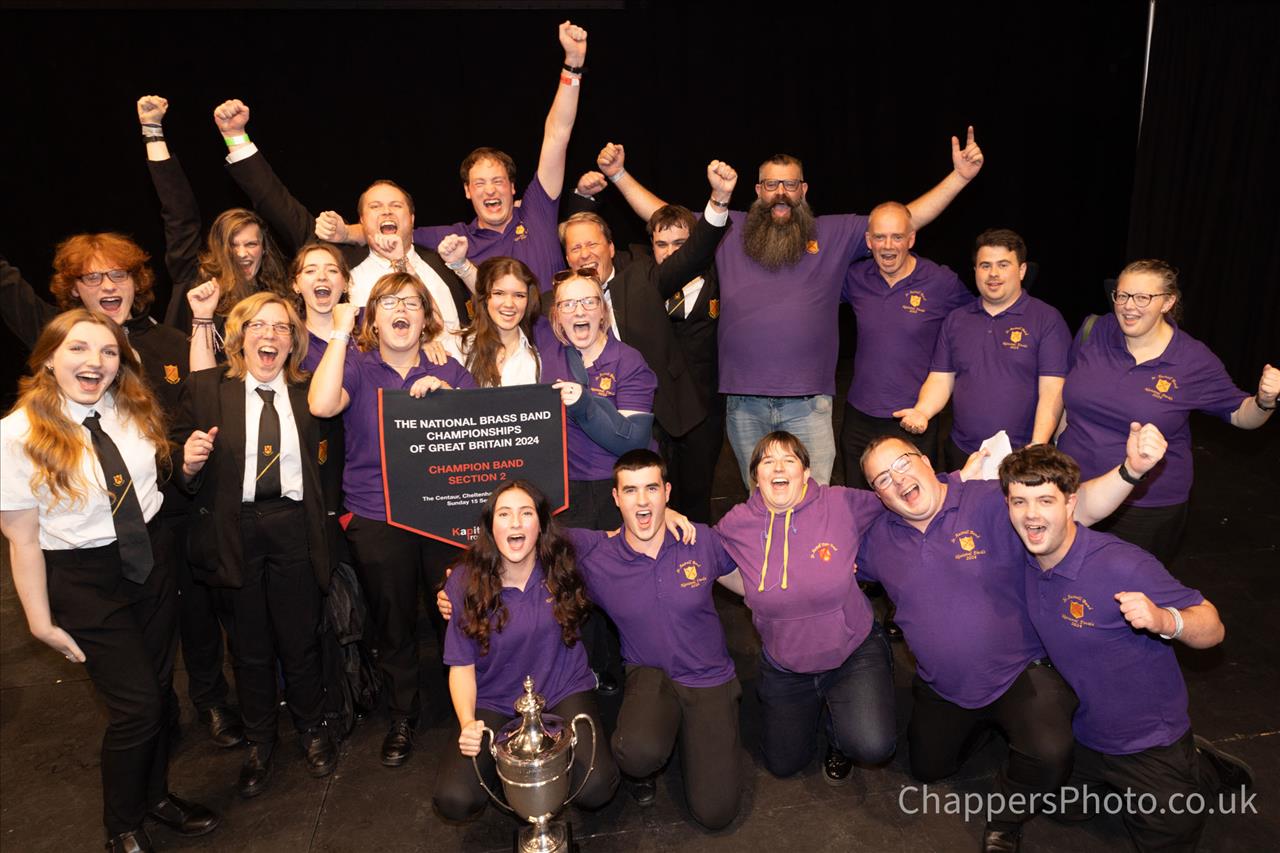
2024 Champion: St Austell
Section 2:
Suite from Adam Zero (Arthur Bliss arr. Dr. Robert Childs)
Adjudicators: Dr Brett Baker; Stephanie Binns; Dr Robert Childs
Abertillery Town (Stephen Sykes)
Carlton Brass (Matt Ludford-King)
Chinnor Silver (Oliver Hallstead-Brooks)
City of Cambridge (Philip Fisher)
Deiniolen (Lois Jones)
Dunston Silver (Fraser Hodgson)
Eagley (Christopher Wormald)
Ferryhill Town (Marieka Gray)
Jedforest Instrumental (Philip Rosier)
Jersey Premier Brass (Jason Mildren)
Liverpool (David McGlynn)
Middleton (Jamie Cooper)
Nailsworth Silver (Anri Adachi)
Perthshire (Willie McMullan)
Porthleven Town (Tom Bassett)
Shirland Welfare (Lynden Cooper)
South Yorkshire Police (Leigh Baker)
Strata (David Holling)
Verwood Town (Kevin Smith)
Third Section:
In 1969 the Royal Family made a fateful decision. They allowed television cameras to peek behind the veiled curtain that had for centuries separated them from their subjects.
Any deference of monarchy was lost the moment viewers saw Her Majesty having breakfast from a tupperware bowl, just like the rest of us.
Elegant steel fence
What they should have done was recommissioned the trio of director, Anthony de Lotbiniere, writer and presenter Kenneth Clark and Sir Arthur Bliss (he had been knighted in 1950) to get back together for a second series of ‘The Royal Palaces’ (first aired on Christmas Day 1966) that did so much to keep the great unwashed in awe, and at arm’s length behind an elegant steel ringed fence.
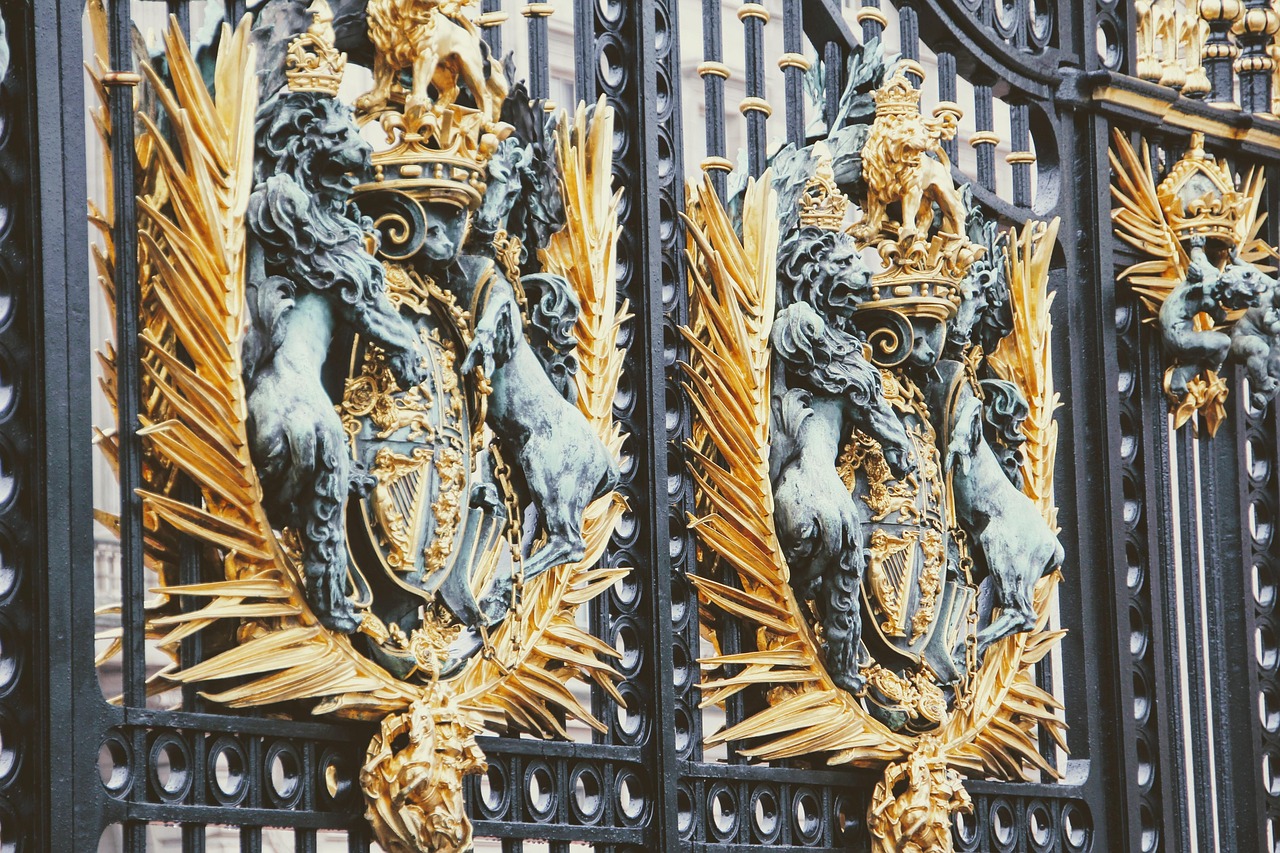
Absolutely delighted
Much of that was down to the music of Bliss, which he took considerable time, care and attention in composing. The director, de Lotbiniere later wrote to him to say how “absolutely delighted” he was. “I spent all yesterday in a kind of trance, not really believing my ears - as each new piece came up it was exactly what I had hoped for.”
Despite the changing attitudes of the 1960s, Bliss brought together a timeless sense of regal grandeur, Ruritanian fantasy, noblesse oblige and melodramatic history found within the walls of the great palaces of state,
Despite the changing attitudes of the 1960s, Bliss brought together a timeless sense of regal grandeur, Ruritanian fantasy, noblesse oblige and melodramatic history found within the walls of the great palaces of state, to evoke different eras when reverence for the monarchy was unquestioned.
Considered appreciation
Michael Halstenson’s arrangement made in 2023 provides a considered appreciation of the Bliss original – right from the most regal of openings with ‘Queen Victoria’s Call to the Throne’; light and expectant in reflecting her youthful ascension, rather than staid and ornate in her frumpy Empire maturity.
‘Jousts of the Knights’ is a reminder of a medieval age lost. It’s as if you are looking up at an old painting on a palace wall
‘The Ballroom in Buckingham Palace’ is a Viennese style ‘Landler’ waltz – catchy and carefully choreographed, whilst ‘Jousts of the Knights’ is a reminder of a medieval age lost. It’s as if you are looking up at an old painting on a palace wall in the reign of George IV (who actually reigned from 1820 to 1830 when jousts had been replaced by the odd pistol duel at dawn).
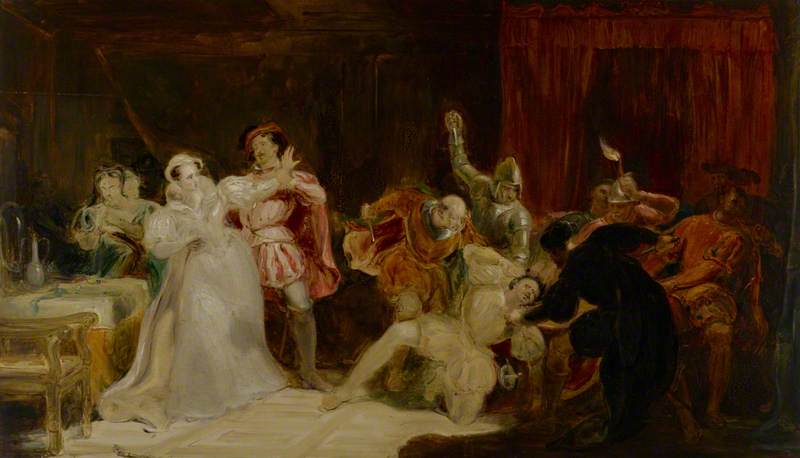
Murder
A cracking bit of melodrama comes with ‘The Murder of Rizzio in Holyrood House’ – who was an Italian musician and confidante of Mary Queen of Scots.
It’s as sharp and sinister as his demise in being stabbed to death (56 times – which makes the Black Queen in Checkmate seem rather parsimonious in comparison) in front of the pregnant monarch. The suite closes with a short reprise of the end credits to the series with regality and majesty reinstated.
It’s as sharp and sinister as his demise in being stabbed to death
Area contrast
After the wide American vistas of ‘Arkansas’ at the Area Championships, ‘The Royal Palaces’ offers an engaging contrast in both outlook and style with its sense of buttoned up refinement, cultured dance steps, sense of history, a decent old Shakespearean murder and closing credits that wouldn’t be out of place in a Pathe news item.
It will take some playing too - asking a great deal from the MD as well as the performers to capture its very British essence in claiming the Third Section crown of Great Britain, courtesy of judges Gary Davies, Martin Heartfield and Andrea Price.

2024 Champion: Golborne
Section 3:
Music from The Royal Palaces (Arthur Bliss arr. Michael Halstenson)
Adjudicators: Gary Davies; Martin Heartfield; Andrea Price
Avonbank (Evesham) (Micah Parsons)
Barnsley Metropolitan (Alex Francis)
Betteshanger Colliery Welfare (Mike West)
Bideford Town (Mark Durham)
Bratton Silver (Kyle Blake)
City of Wrexham (Scott Lloyd)
Dobcross Silver (Jason Smith)
Flookburgh Silver (John Iveson)
Ibstock Brick (Jon Penton)
Littleport (Ian Johnson)
Mid Rhondda (Adrian Morton)
Oughtibridge (John Hopkinson)
Pilling Jubilee Silver (Joshua Hughes)
Putney & Wimbledon (Dr. Sam Topp)
Renfrew Burgh (Mark Good)
Rivington & Adlington (Malcolm Wilson)
St Ronan's Silver (Michael Marzella)
Swindon (Steve Yorke)
Thrapston Town (Nathan Waterman)
Trimdon Concert (Andrew Hall)
Fourth Section:
The weekend ‘Blissathon’ will be interrupted on Sunday morning with a celebration of a composer still very much alive and enjoying an extended series of celebratory performances himself in honour of his 80th birthday.
One of Edward Gregson’s later compositions, ‘Symphony in Two Movements’ will be performed at the Royal Albert Hall in a few weeks’ time, so it is good to hear one his earliest for the medium enjoying a timely reprise (it last appeared en-masse in 2002 at the Fourth Section Areas).
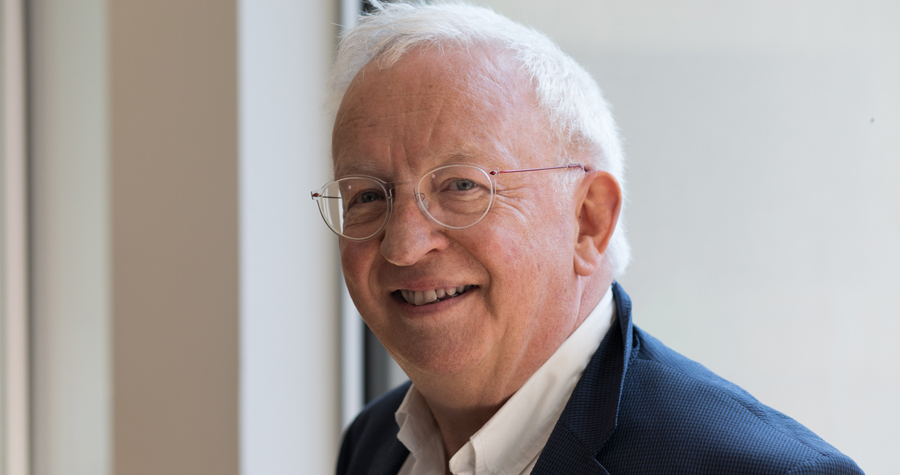
Crafted balance
‘Partita’ dates from 1971 and was premiered by the then Redbridge Youth Band conducted by John Ridgeon.
It sits in his chronological canon with the likes of ‘Prelude for an Occasion’ and ‘Voices of Youth’ (both 1968), ‘Essay’ (1971) and ‘The Plantagenets’ (1973), and has the same wonderfully crafted balance of academic rigour and musical freedom based on a thread of thematic material that comes from a 13th century plainsong ‘Dies Irae’ (Day of Wrath) from the ‘Requiem Mass’.
It sits in his chronological canon with the likes of ‘Prelude for an Occasion’ and ‘Voices of Youth’ (both 1968), ‘Essay’ (1971) and ‘The Plantagenets’ (1973), and has the same wonderfully crafted balance of academic rigour and musical freedom
The opening movement is a rather seriously sculpted ‘Intrada’ - darkly bold and majestic in feel. It gives way to a central ‘Chorale and Variations’ which uses the ‘Dies Irae’ as the basis for an extended melody in the manner of a baroque sarabande, shaped with a tender melodic pulse and middle bands sonority.
Hallmarks
The final ‘March’ is packed with early Gregson hallmarks - dislocated rhythms that never sound forced in being joined together. It has a jaunty John Barry film score feel before returning to its serious intent and the ominous return of the ‘Dies Irae’ statement to close with just a hint or two of major contest works that were to follow in the years ahead.
Appreciation
Fourth Section bands have been well served by cracking works at both Area and National Final level in recent years – with this, a return to an appreciation of the serious musical underpinnings that requires a band to have all the necessary basic requirements of good ensemble playing well and truly in place.
If they have then the MD can really create a performance of note and one that could well catch the ears of Alan Bourne, David Hirst (fresh from British Open duties last weekend) and Steve Pritchard-Jones in the box.

2024 Champion: Betteshanger Colliery
Section 4:
Partita (Edward Gregson)
Adjudicators: Alan Bourne; David Hirst; Steve Pritchard-Jones
Arbroath & Carnoustie (Neill McDonald)
Brackley & District (Mark Probert)
City of Oxford Silver (Douglas Brown)
Cobham (Will Wilkins)
Darwen (David W Ashworth)
Friendly Band (Sowerby Bridge) (Mick Silson)
Holywell (Steve Pugh-Jones)
Illogan Sparnon Silver (Shaun Marsden)
Ireland Colliery Chesterfield (Sarah Fellowes)
Knaresborough Silver (Nicholas Garrett)
Midsomer Norton & Radstock Silver (Harry Chambers)
Queensbury Music Centre (Chris Lewis)
Red Admiral (Stuart Barton)
Stranraer (Angela Miller)
Syston (Alex Bland)
Tewit Community (Andrew Williams)
Wantage Academy (Nikki Jones)














